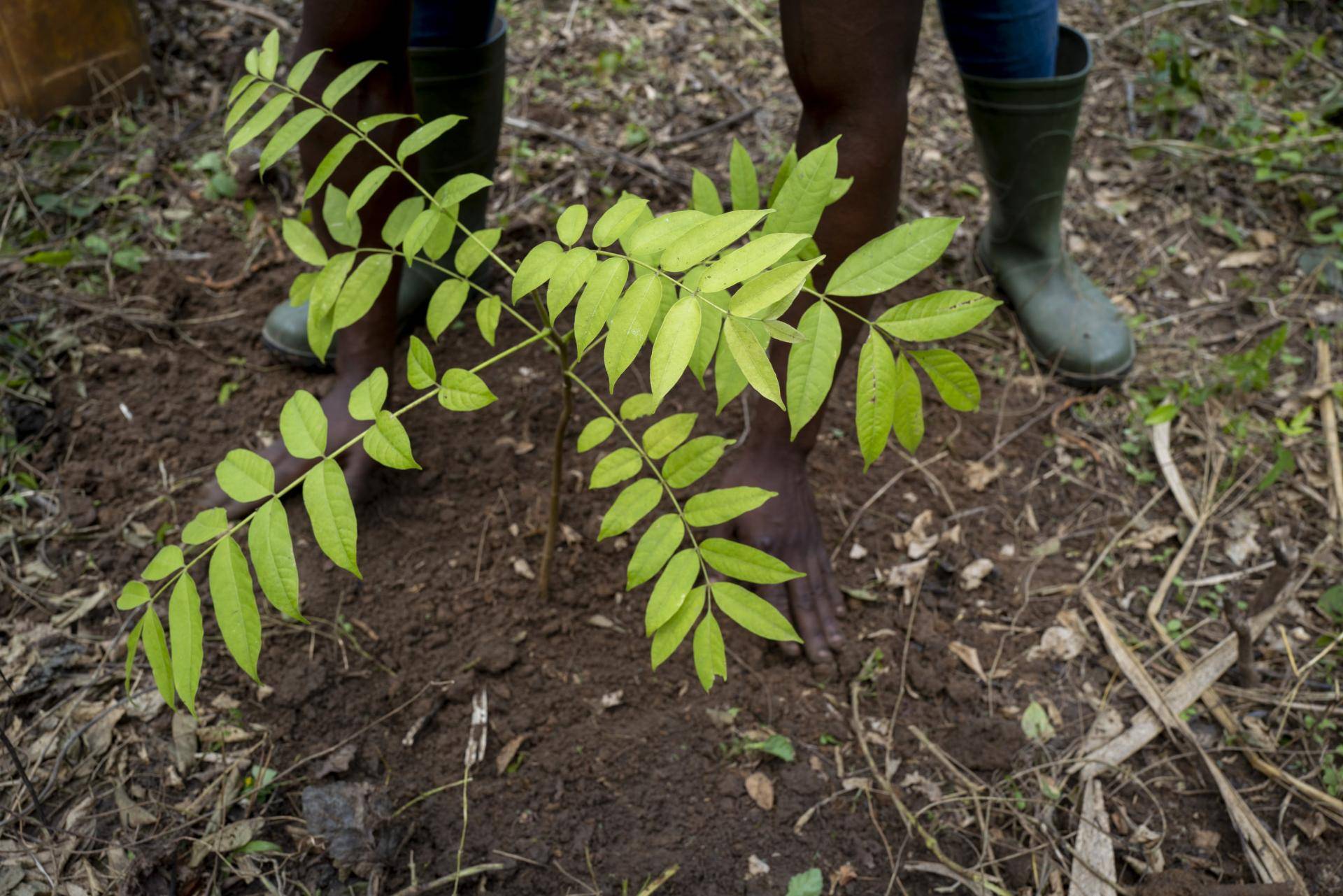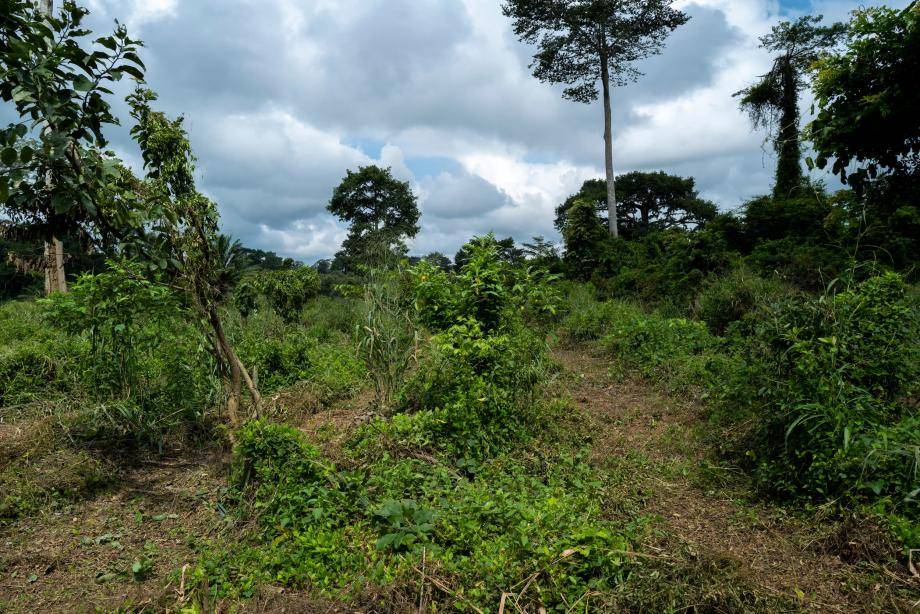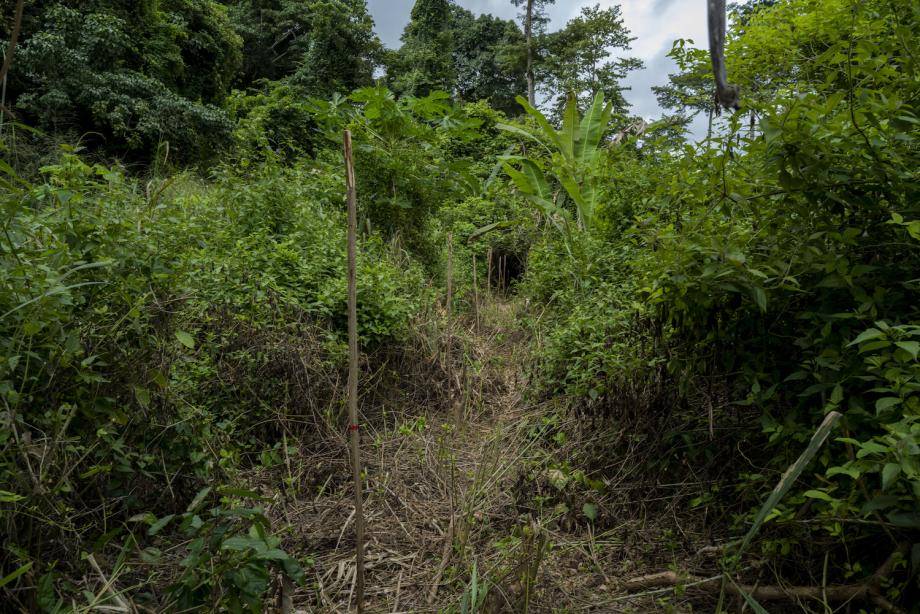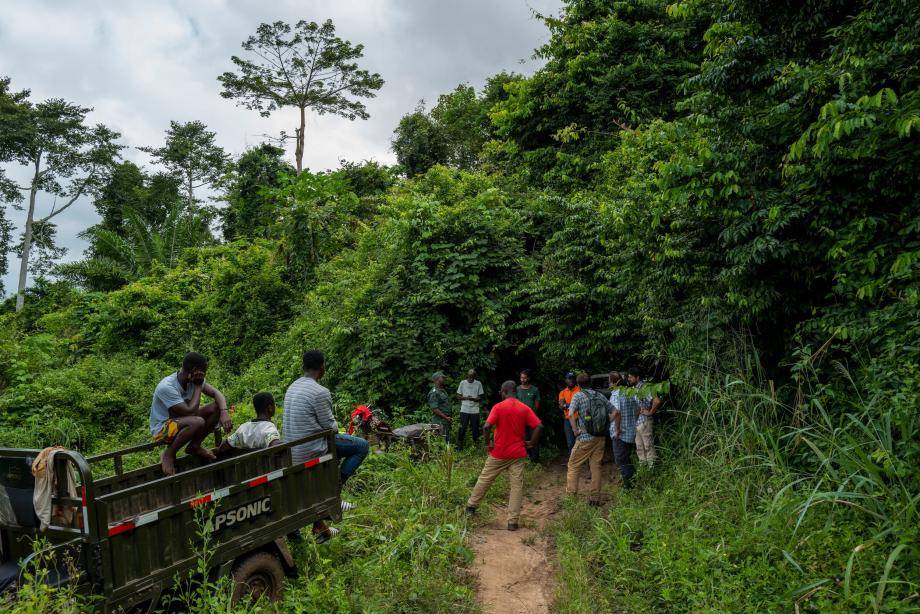Restoring a community’s green heart:
the unique Agbo 2 Forest restoration project in Côte d’Ivoire

Restoring a community’s green heart:
the unique Agbo 2 Forest restoration project in Côte d’Ivoire

Côte d’Ivoire’s Agbo 2 is a designated protected forest area. However, much of the forest has been lost over time to illegal slash-and-burn, logging and poor agricultural practices.
Côte d’Ivoire’s Agbo 2 Forest is home to two rivers and hundreds of indigenous plant species. Although designated as protected, many hectares of the forest have been lost over time to illegal slash-and-burn, logging and poor agricultural practices. Supported by the Cocoa Horizons Foundation, Barry Callebaut has joined forces with partners to commence a large reforestation and biodiversity restoration initiative. Since mid-2021, more than 50,000 native trees have been planted under the reforestation project, which will continue to scale over the next three years to reach the objective of 150,000 trees on 300 hectares. This is yet another step towards meeting our aim to become carbon and forest positive by 2025.
“Ours is a very ambitious goal,” says Tilmann Silber, Senior Climate, Land and Carbon Development Manager at Barry Callebaut. “We recognize the historical impact of increased cocoa growing on land and on cocoa farming communities.”
Engaging local communities
Since the beginning of the project, community involvement has been vital. Some local community members were initially skeptical about the project's motives. However, following discussions with the collaborators of the project, they were pleased to learn that the project did not involve cutting down trees, but rather, aimed to restore the forest for the benefit of the entire community.
For decades, the on-farm practice was cutting down as many trees as possible to provide more sunlight for cocoa trees. However, shade management is better for both tree and soil health. Replanting native trees under our agroforestry project shows farmers the benefits of changing their approach.
Tilmann explains "For decades, the on-farm practice was cutting down as many trees as possible to provide more sunlight for cocoa trees. However, shade management is better for both tree and soil health. Replanting native trees under our agroforestry project shows farmers the benefits of changing their approach."
Tilmann continues: "Community engagement also means creating additional sources of income, which has generated much interest in the reforestation project after initial skepticism. We created areas in the forest where they can grow vegetables as we plant trees. To date, on average, one member of each nearby household has been trained on practical forest restoration skills including tree planting, surveying and nursery management and employed to implement the project. In addition, farmers will receive financial incentives for maintaining agroforestry on their farms."

50,000 trees have been planted since mid-2021
The value of strategic partnerships
An additional condition for the project’s long-term success, is the partnering with SODEFOR, Côte d’Ivoire’s forest management agency, FORLIANCE, a leading sustainable land use consultancy, and EticWood, a consultancy experienced in forestry and agroforestry implementation. Huntley Bromwell, FORLIANCE Senior Consultant, believes collaborating with stakeholders and the local community is vital to ensure all parties understand the benefits of restoring the Agbo 2 Forest. "The trees we’ve planted are already growing quickly, capturing carbon and improving temperature regulation; some of them may live longer than anyone working on this project!"
Such longevity is more than welcome, as over 50,000 trees have been planted since mid-2021. Combining skilled teams with community support has made it very evident that protecting forests and restoring high-value ecosystems is Barry Callebaut’s priority.
Community benefits
Basile Houters, Forest Restoration Manager, EticWood, highlights the benefits for the people of Kouadiokro, Arrah and other nearby communities. "This forest creates a lot of jobs, and the farmers have been engaged and interested in the project. It is even a matter of pride in the community. EticWood has recruited and trained workers who will be employed for at least three years and assisting natural regeneration in and around remaining forest patches. We hope the climatic benefit the forest creates will also produce more rain for the farmers."
This forest creates a lot of jobs, and the farmers have been engaged and interested in the project. It is even a matter of pride in the community.

Training and employment in forest management: community engagement and participation is critical for the success of the project.
This sentiment is echoed by FORLIANCE’s Huntley Bromwell, affirming the project’s many rewards. "The trees will soon provide ecosystem services like soil protection and cleaner air, as well as a source of food like fruit and honey. Forests are a great economic resource, and we need to ensure that local economies benefit from both preservation and sustainable harvesting practices."
Tilmann describes the broad strategy. "We have an on-farm vision of turning monocultures into more resilient farms through agroforestry. Complementing this, we also have off-farm restoration activities, targeting degraded patches of land between farms, which local populations use for many purposes." Particular attention has been given to reintroducing strong, indigenous tree species to ensure a good survival rate and regenerate the natural ecosystem. Ten species have already been planted this first year, amongst which timber-producing trees or valuable fruit trees farmers can use for food or extra income. In the future, communities will be engaged to collect different local seeds for a wider variety of seedlings to be cultivated.
The trees will soon provide ecosystem services like soil protection and cleaner air, as well as a source of food like fruit and honey. Forests are a great economic resource, and we need to ensure that local economies benefit from both preservation and sustainable harvesting practices.
Next steps
Tilmann is hopeful of the project’s outcomes. "There are some million hectares of land and several millions of farmers in our global supply chain. Projects like this allow us to channel funding support from our customers to areas where we can add value through these restoration activities." Driving Barry Callebaut’s environmental activities, he says, "If I have one mission, it is to always explain the need to appreciate the farmers, who are producing our food, and the ecosystems, which we and all of nature rely on to thrive. We have a chance at a sustainable future by investing in nature-centric farming systems. When farmers see benefits for their cocoa farms, as well as their contribution to climate change mitigation, it will be a really big game-changer."
Scaling this activity to over 1,000 hectares in Agbo 2 is possible, with further restoration areas in the works.
FORLIANCE also shares this optimism. "If we as a global community appreciate the tremendous worth of forests and value them appropriately, there won’t be a shortage of funding for restoration. We can all do our part,” Huntley believes. "Companies can commit to doing right by the very environment that makes their business possible, communities and local leaders can demand that governments restore and protect nature, and consumers can demand sustainable products.”
